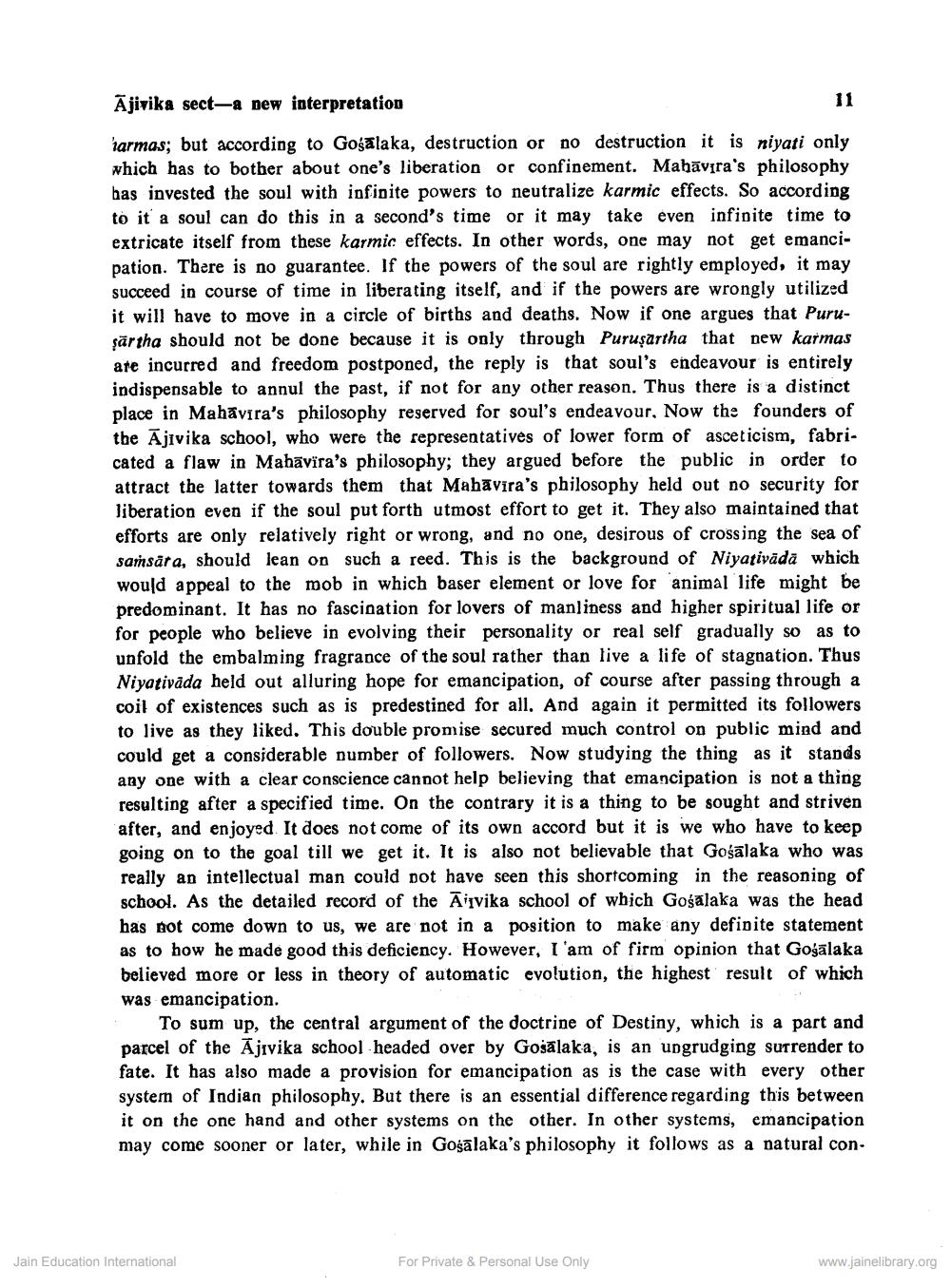________________
Ājivika sect-a new interpretation
ic effecte he or it anze karmi
tarmas; but according to Goślaka, destruction or no destruction it is niyati only which has to bother about one's liberation or confinement. Mahāvıra's philosophy has invested the soul with infinite powers to neutralize karmic effects. So according to it a soul can do this in a second's time or it may take even infinite time to extricate itself from these karmic effects. In other words, one may not get emancipation. There is no guarantee. If the powers of the soul are rightly employed, it may succeed in course of time in liberating itself, and if the powers are wrongly utilized it will have to move in a circle of births and deaths. Now if one argues that Puruşārtha should not be done because it is only through Puruşartha that new karmas are incurred and freedom postponed, the reply is that soul's endeavour is entirely indispensable to annul the past, if not for any other reason. Thus there is a distinct place in Mahavira's philosophy reserved for soul's endeavour, Now the founders of the Ājivika school, who were the representatives of lower form of asceticism, fabricated a flaw in Mahāvīra's philosophy; they argued before the public in order to attract the latter towards them that Mahāvira's philosophy held out no security for liberation even if the soul put forth utmost effort to get it. They also maintained that efforts are only relatively right or wrong, and no one, desirous of crossing the sea of samsára, should lean on such a reed. This is the background of Niyativādā which would appeal to the mob in which baser element or love for animal life might be predominant. It has no fascination for lovers of manliness and higher spiritual life or for people who believe in evolving their personality or real self gradually so as to unfold the embalming fragrance of the soul rather than live a life of stagnation. Thus Niyativada held out alluring hope for emancipation, of course after passing through a coil of existences such as is predestined for all. And again it permitted its followers to live as they liked. This double promise secured much control on public mind and could get a considerable number of followers. Now studying the thing as it stands any one with a clear conscience cannot help believing that emancipation is not a thing resulting after a specified time. On the contrary it is a thing to be sought and striven after, and enjoyed It does not come of its own accord but it is we who have to keep going on to the goal till we get it. It is also not believable that Gośālaka who was really an intellectual man could pot have seen this shortcoming in the reasoning of school. As the detailed record of the Aiivika school of which Gośalaka was the head has not come down to us, we are not in a position to make any definite statement as to how he made good this deficiency. However, I'am of firm opinion that Gośālaka believed more or less in theory of automatic evolution, the highest result of which was emancipation.
To sum up, the central argument of the doctrine of Destiny, which is a part and parcel of the Ajivika school headed over by Gosālaka, is an upgrudging surrender to fate. It has also made a provision for emancipation as is the case with every other system of Indian philosophy. But there is an essential difference regarding this between it on the one hand and other systems on the other. In other systems, emancipation may come sooner or later, while in Gośālaka's philosophy it follows as a natural con.
Jain Education International
For Private & Personal Use Only
www.jainelibrary.org




